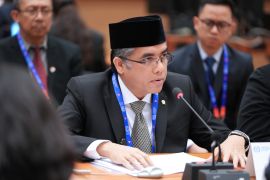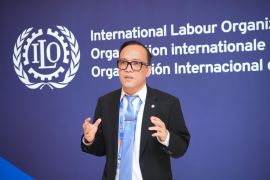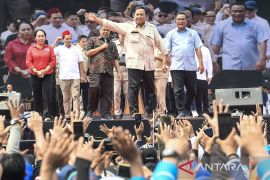"The treatment the Indonesian migrant workers have received so far is not yet comparable to their contribution to the state. The remittance from Indonesian migrant workers is the second largest foreign exchange contributor after the oil and gas sector," Irham Ali Saifuddin, capacity building specialist of the International Labour Organization (ILO) for Jakarta office, said here on Wednesday.
He said that Indonesian workers abroad sent remittances worth more than Rp73 trillion in foreign exchange to the country in 2013.
Irham was speaking as a resource person in a training here on Wednesday which carried a theme "Information and Communications Technology for the Protection of Housemaids."
"Remittances sent by migrant workers to their families in villages are very important for supporting economic activities. But what they got from the state was not yet comparable to the benefit of the remittances," he said.
Indonesia is the second largest worker exporter in Southeast Asia after the Philippines.
A total of six million Indonesian migrant workers are working abroad. Indonesia has been registered to be one of the countries which enjoyed the economic benefit of remittances contributed by migrant workers overseas.
However, many Indonesian workers still experienced inhumane treatment during their pre-departure, placement overseas until their return to the country again, he said.
They often face various violence and threats of life. There are a lot of migrant workers who are then deported without bringing back any single penny. Some even came back only with a name and a lifeless body, Irham said.
Therefore, the government needs to totally revitalize its migrant workers policies, particularly on the management of migrant workers during their three phases of employment.
"The state should not bow to manpower recruiting middlemen. After all, the government is represented by an instrument from the central government to the administration of villages, even of the neighborhood. Coordination must be made well," he said.
The government should also take a firm attitude against manpower supplier companies (PPTKIS). It should make the recruitment rules as simple as possible, to prevent would-be workers from being cheated and extorted by middlemen.
He said that the government should also eliminate irrelevant requirements which could serve as a means of extortion such the policy requiring would-be workers to have an overseas work card.
Besides that, the government should also improve its services for workers abroad.
(A014/f001 )
(A014/F001)
Editor: Jafar M Sidik
Copyright © ANTARA 2013











